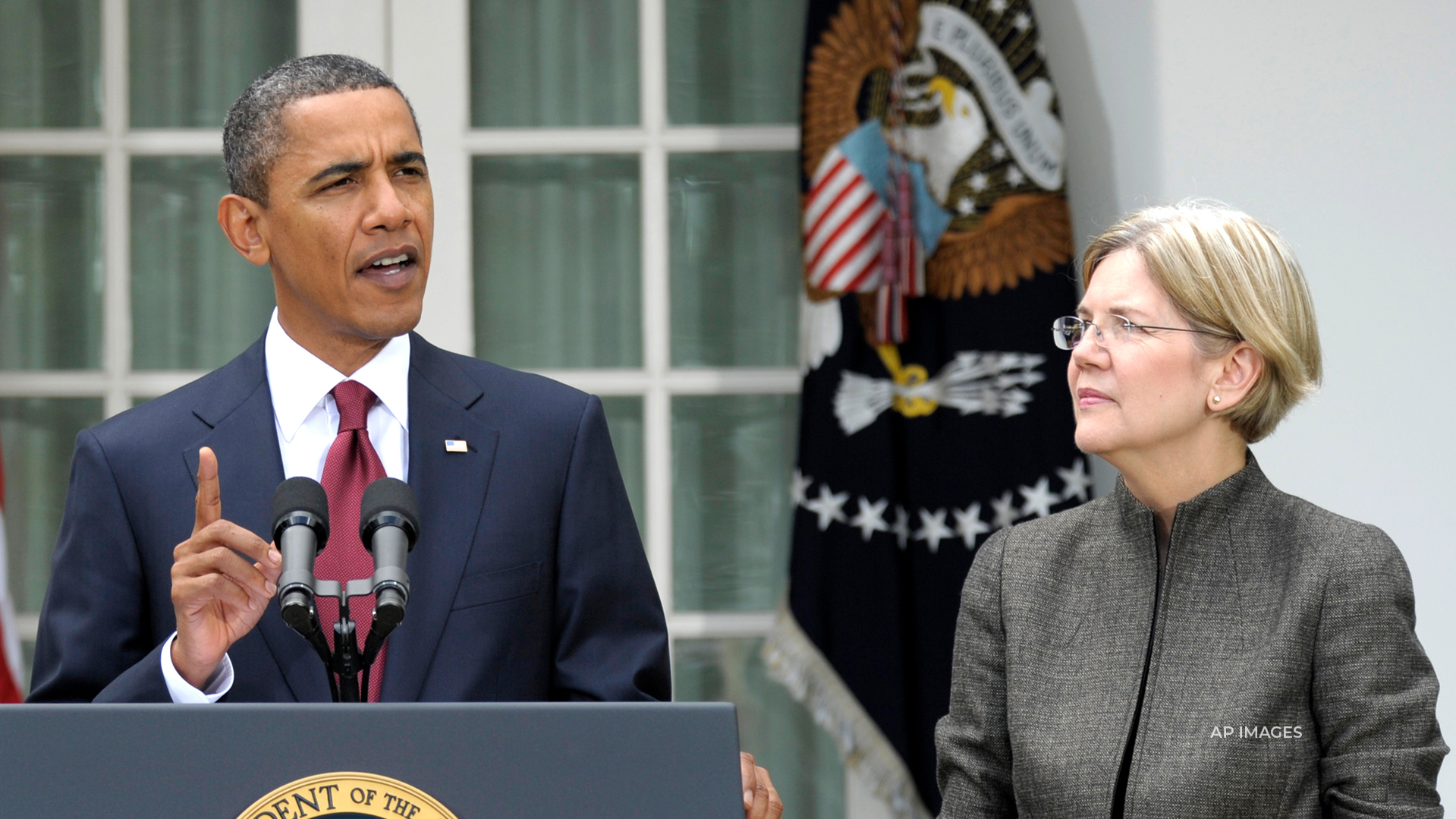
SIMONE DEL ROSARIO: THE SUPREME COURT IS SET TO REVIEW WHETHER AN ENTIRE FEDERAL AGENCY IS UNCONSTITUTIONAL.
THE FUTURE OF THE CONSUMER FINANCIAL PROTECTION BUREAU IS AT STAKE.
FIRST – WHAT IT IS.
THE C-F-P-B WAS BORN OUT OF THE 2008 FINANCIAL CRISIS. IT IS THE BRAINCHILD OF THEN-FUTURE SENATOR ELIZABETH WARREN. IN 2010, CONGRESS AND THEN-PRESIDENT BARACK OBAMA SIGNED THE DODD FRANK ACT WHICH CREATED THE BUREAU. IT CONSOLIDATED CONSUMER FINANCIAL PROTECTION AUTHORITY FROM SEVEN DIFFERENT AGENCIES UNDER ONE ROOF.
SOME OF THE BUREAU’S WINS INCLUDE:
EXPOSING THE WELLS FARGO FAKE ACCOUNTS SCHEME AND OTHER VIOLATIONS, FORCING THE BANK TO PAY BILLIONS IN FINES.
CRACKING DOWN ON RISKY MORTGAGE LENDING, THE CATALYST OF THE FINANCIAL CRASH.
AND RECOVERING $16 BILLION FOR CUSTOMERS SINCE ITS INCEPTION.
CRITICS OF THE BUREAU HAVE LONG ARGUED IT IS TOO POWERFUL, UNACCOUNTABLE AND BURDENSOME, LEVYING TOO MANY FINANCIAL REGULATIONS.
A PARTICULAR POINT OF ATTACK IS THE WAY THE BUREAU WAS STRUCTURED FROM THE BEGINNING.
DEMOCRATS INTENDED TO PROTECT THE BUREAU FROM POLITICAL PRESSURE IN TWO WAYS: ONE, THE SOLE AGENCY DIRECTOR COULD ONLY BE FIRED FOR CAUSE, AND TWO, THE AGENCY WOULD BE FUNDED THROUGH THE FEDERAL RESERVE, NOT CONGRESSIONAL APPROPRIATIONS.
THAT FIRST ONE WAS ALREADY CHALLENGED IN A 2020 SUPREME COURT RULING. THE COURT DETERMINED THE DIRECTOR’S REMOVAL PROTECTIONS WERE UNCONSTITUTIONAL, AND NOW THE BUREAU DIRECTOR SERVES AT THE PLEASURE OF THE PRESIDENT AND CAN BE FIRED AT WILL.
THE SECOND PART IS AT THE HEART OF THE CASE THE SUPREME HAS JUST DECIDED TO REVIEW.
THREE TRUMP-APPOINTED JUSTICES FROM THE 5TH CIRCUIT COURT OF APPEALS RULED IN OCTOBER THAT CFPB FUNDING GOES AGAINST THE CONSTITUTION BECAUSE IT BYPASSES CONGRESS, VIOLATING SEPARATION OF POWERS.
IT STEMMED FROM A LAWSUIT BY THE PAYDAY LENDING INDUSTRY, CHALLENGING A CFPB RULE THAT WOULD HAVE RESTRICTED THEIR ACCESS TO CUSTOMER BANK ACCOUNTS.
THE COURT RULED AGAINST THE BUREAU NOT BECAUSE OF A LACK OF AUTHORITY IN MAKING THAT RULE, BUT BECAUSE IT FINANCED ITS RULEMAKING VIA UNCONSTITUTIONAL FUNDING.
IF THIS DECISION IS UPHELD, IT COULD THROW INTO QUESTION EVERY RULE THE AGENCY HAS MADE IN ITS 12-YEAR HISTORY.
THE BIDEN ADMINISTRATION ASKED THE SUPREME COURT TO EXPEDITE THE REVIEW, BUT THE COURT DECIDED AGAINST FAST-TRACKING IT, SO A DECISION WON’T COME FOR ABOUT ANOTHER YEAR.
I’M SIMONE DEL ROSARIO IN NEW YORK IT’S JUST BUSINESS.






